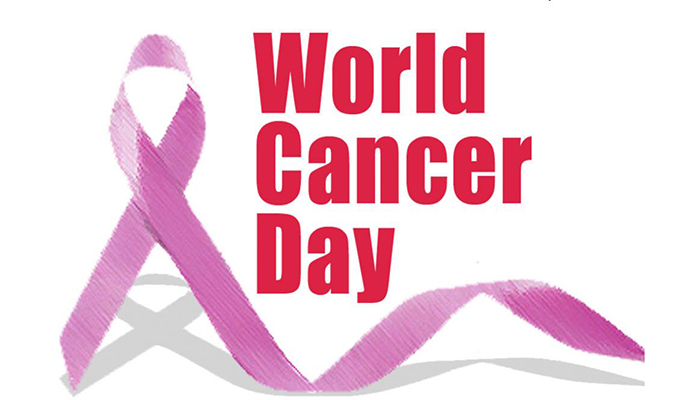
Michelle Madzudzo/ Mackintosh Chigumira CANCER is still one of the leading causes of death in Zimbabwe amid COVID-19 pandemic outcry. While attention and resources are diverted towards COVID-19, cancer continues with its rage devouring people around the country. With awareness and knowledge of the danger posed by cancer and the need for cancer screening and early detection, cancer-related deaths can be minimised.
In order to complement government efforts in fighting cancer, business community, civil society organisations, individuals and other stakeholders should converge towards the same cause. Corporates can be involved through corporate social responsibility or partnering with established cancer organisations which can help promote awareness, access to healthcare facilities and improving the likelihood of people to go for cancer screening and get cancer treatment.
Health information and cancer screening awareness campaigns should be intensified to reach the public especially for the rural population. These efforts and initiatives can increase public access to information about cancer, and cancer screening and treatment facilities among the rural population.
There is need for a comprehensive approach to make sure community health institutions are equipped with sufficient cancer-screening facilities. Long distances from healthcare facilities and an insufficient and ineffective public transportation system do not make access to healthcare facilities any easier in most parts of the country. This often delays diagnosis and treatment of cancer, resulting in poor prognosis or death.
Partnership with cancer organisations can lessen cancer burden not only for the government but for the entire nation. Approaching cancer as a disaster may guarantee victory against this disease just like the country managed to absorb Cyclone Idai and COVID-19 shocks through the help of various organisations and individuals.
The Health ministry is experiencing challenges with radiotherapy machines which have led Mpilo radiotherapy department to be idle for over a year. It’s undeniable that fixing of radiotherapy machines is expensive, but it’s unfortunate that these expenses have encroached into cancer patients’ pockets as they seek expensive treatment elsewhere. We need to understand that in some cases, cancer treatment makes patients unfit to work and this can lead to loss of jobs and income. It is, therefore, imperative that patients should be given the much-needed assistance in cases where the cost is beyond their reach.
In order to face this “Goliath”, strategies have to be devised and implemented as a nation to secure a solid financial position, access to healthcare facilities, and conducive socio-cultural factors for cancer screening and post-diagnosis treatment. Organisations or individuals can invest towards cancer treatment by ensuring availability of radiotherapy facilities around the country so that treatment can be accessed easily at affordable cost. The country has only three radiotherapy departments which are incapable of serving the entire nation. In most cases, the radiotherapy machines are down causing treatment delays or death of potential cancer survivors. In order to serve lives, donations can go a long way in complementing government efforts in the maintenance of the life-saving machines.
Non-governmental organisations (NGOs) can also play a critical role in addressing cancer awareness and treatment issues beyond financial intervention through advocating for policy change and enforcement and ensuring urgency to neglected issues. Tobacco consumption control, early detection programmes, provision of essential medicine for chemotherapy and pain control are areas NGOs and corporates can come in handy for effective impact.
- Chamisa under fire over US$120K donation
- Mavhunga puts DeMbare into Chibuku quarterfinals
- Pension funds bet on Cabora Bassa oilfields
- Councils defy govt fire tender directive
Keep Reading
There is an urgent need to come up with initiatives and efforts to disseminate accurate and timely information about common cancers in Zimbabwe such as breast, cervical, colon, rectum, lung and prostate cancers. Awareness of these cancers and screening levels are still very low.
There are huge disparities in the capacity of healthcare systems, governmental programmes, and non-governmental organisations which should be contributing substantially to the cancer burden.
Corporates can undertake cancer prevention activities at their premises as one of their health promotion programmes.
Such programmes may include prohibition of smoking, dietary modifications, and screening programmes which can be integrated into a workplace health promotion.
Cancer knowledge and awareness among the public are, therefore, extremely important.
People who have knowledge of cancer take pro-active action by going for cancer screening.
Information related to cancer screening, treatment, healthy foods and healthy lifestyle choices should be availed at all levels of society through media, social platforms or Zoom meetings.
Rather than giving answers, we are now at a stage where it is important to raise the right questions and to stimulate debate among all parties concerned. This should include not only those involved in safety and health at work, but also other stakeholders involved in the CSR developments. There is need to create partnerships that are mutually beneficial which I believe are highly effective with all partners valued for their contribution and commitment, regardless of standing or sector.
It is also the responsibility of cancer organisations like Talk Cancer Zim to partner corporates and individuals to raise vital funds towards building awareness which play a crucial role in saving lives. We also believe that partnerships can have significant impact by undertaking research.
Organisations can make tax-deductable donations as they undertake their corporate social responsibility roles. Apart from monetary support, individuals can play their role by assisting with furniture, tents, transport, stationery or anything that can promote awareness and treatment campaigns throughout the country. There are a number of ways to serve the nation. Together we can beat cancer!











